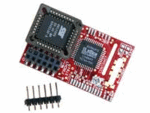Cheating: Difference between revisions
From Halopedia, the Halo wiki
m (→Soft Mod) |
m (Text replacement - "\|(right|thumb)(\|[^\]\n]+)?\|(right|thumb)" to "|thumb$2") |
||
| (92 intermediate revisions by 51 users not shown) | |||
| Line 1: | Line 1: | ||
{{ | {{Status|Gameplay}} | ||
{{ | {{Wikipedia|Cheating (video games)}} | ||
[[File:Nocheating.gif|thumb|150px|No Cheating!]] | |||
[[ | '''Cheating''' is when a player exploits a game using various methods, thus giving them an unfair advantage over other players. There are many methods of cheating that players use, including [[Modding]], Bridging, Dummying, Standbying, [[Super bouncing]], and [[Button combo|Button Combos]]. Any use of these cheating methods can get a player banned from [[Xbox LIVE]] entirely. | ||
Cheating has been a common problem in the ''[[Halo (disambiguation)|Halo]]'' community; it began almost immediately after the release of ''[[Halo: Combat Evolved (PC port)|''Halo: Combat Evolved'' for PC]]'', and continued in ''[[Halo 2]]'' and ''[[Halo 3]]''. Users exploited bugs within the game or network to win ranked games, thus increasing their [[Matchmaking]] rank. Though [[Bungie]] has released anti-cheat patches and protections for both ''Halo 2'' and ''Halo 3'', cheating is still common in ''Halo 2''. | |||
==Forms of Cheating== | |||
===Standbying=== | |||
[[File:MotorolaCableModem.jpg|thumb|150px|Cable Modem with Standby Button and LED status lights.]] | |||
Standbying, also known as Lag Switching, was one of the first forms of cheating used in ''Halo 2''. This cheat, which could only be performed by the [[Connection Host|connection host]], involved players intentionally pressing the standby button on their [[Wikipedia:modem|modem]], freezing the game for other players and giving the cheater(s) time to accomplish their objective. Some cheaters also unplug their Ethernet cables. | |||
When the connection host presses their modem's standby button, all other players on the host's screen will continue moving in straight lines in the direction they were moving prior to the standby. When connection is re-established, the other players will resume control, but will have 'teleported' to their positions on the host's screen. | |||
When combined with killing, players will appear to die and respawn instantly. | |||
Standbying was heavily exploited by many players, and was quickly noticed by Bungie. Players that standby too often can be detected and [[ban]]ned from Matchmaking. | |||
In the majority of cases from Xbox Live, players would often use this cheat to change the outcome of a game that was previously not in their favor, in order to pad their ranked [[matchmaking]] stats. Some cheaters went to great lengths to standby; numerous walkthroughs for the cheat exist on the Internet, including one that involves wiring an Ethernet cable into a lightswitch (an actual "lag switch"). | |||
===Screenwatching=== | |||
Screenwatching is the act of looking at other player's screen to determine their positions, armament, avoid their attacks, or find them easily. Screenwatching is probably the oldest form of cheating in first-person shooters, as it has been around since split-screen gameplay was invented. | |||
On Halo: Combat Evolved, Halo 2 and Halo 3, screenwatching is usually unavoidable to an extent, particularly when the players are playing on a small monitor. Screenwatching is usually used to prevent being sniped or assassinated, as the player will notice themselves in the sights of another player and quickly hide. Despite its inevitability, screenwatching is looked down upon as a “Newb” tactic. Other people say that screenwatching is inevitable. If someone says they never do so, then they must be lying, since this is often used as justification for the tactic. | |||
If players are short on monitors, two or more Xboxes system-linked together on two or more monitors will work when each team has their own monitor. This way, watching your teammates' screen only provides a minor advantage. | |||
Screenwatching is more acceptable by the community when playing a gamemode where it is certain that the players will remain teammates (e.g., Team Slayer) or to simply monitor another player's interactions with the map in Forge. | |||
===Boosting=== | |||
Boosting refers to the cooperation of ''Halo'' players to earn Matchmaking EXP or [[achievement]]s. Such players dishonestly earn EXP through various means; a common technique is to have most of the players intentionally lose or quit out, allowing the "victor" to gain EXP without any actual effort. Some boosters also sign several dummy profiles or guests into Xbox Live, play Matchmaking, and kill the inactive guests repeatedly for points and EXP. | |||
In some cases, players may also form game parties larger than a given playlist's team size; when the party enters that playlist, some of the party members will inevitably be separated onto a different team. These party members may then facilitate boosting by remaining inactive, while their "enemies" kill them for free points. Such separated players may also [[betrayal|Teamkill]] or use [[Suicide|Suicide Insurance]] to help control the outcome of the match. | |||
EXP boosting, if detected, will earn a Matchmaking ban. [[Ban#The Banhammer|The Banhammer]] is able to recognize completely inactive players (as in, dummy players) in matches. Achievement boosting isn't against the rules, but it is often mistaken for EXP boosting and in such cases results in the same ban. | |||
===Modding=== | ===Modding=== | ||
====Soft Mod==== | {{main|Modding}} | ||
[[ | ==== Soft Mod ==== | ||
[[File:Action replay xbox.jpg|left|thumb|150px|Xbox Action Replay Kit.]] | |||
“Soft Mod” refers to instances of cheating where players use external programs in their console or computer to give themselves an unfair advantage, or to accomplish tasks not normally possible in the game. Such programs include [[Action Replay]], which allows players to input hexadecimal codes to manipulate variables (such as a player's remaining ammo) and settings in the game. Action Replay use can result in a ban. | |||
Soft Modding also refers to the modification of game data in general. In ''Halo 3'', this includes the modification of [[Forge|map variants]], [[custom game|game variants]], [[Theater|screenshots, films, and film clips]]. Creating modded content will result in a console ban; uploading any modded content to a [[File Share]] will result in a File Share ban. | |||
*Enhanced | Soft mods can grant a player: | ||
*Enhanced | *Enhanced [[health]] or shields. | ||
*Unlimited | *Enhanced [[weapons]]. | ||
*Unlimited ammo and [[grenade]]s. | |||
*”Clones”—player models that don't do anything—in map variants. | |||
* | |||
There have been many debates about whether soft mods should be permitted in [[Forge]] and [[custom game]]s. | |||
There have been many debates whether | |||
====Hard Mod==== | ====Hard Mod==== | ||
[[ | [[File:Aladdin-xt-xbox-mod-chip x3.gif|thumb|150px|A mod chip for the Xbox.]] | ||
A Hard Mod is the | A Hard Mod is the modification of a console. Hard Mods, which are widely considered to be hacking, require the modification of an Xbox or Xbox 360's internal components. By modifying the BIOS, a hacker can enable the Xbox to play copied or downloaded games, or run unsigned code. | ||
Hard Mods allow a console to run illegally downloaded games; they can also allow players to hack into a downloadable map and alter their properties and [[tag]]s; hard mods allowed players to mod ''Halo 2'' maps almost as well as they could in ''[[Halo Custom Edition]]''. | |||
The most common form of hard mod is the mod chip: a computer chip that must be soldered to a console's motherboard. | |||
Bungie has resolved the Hard Mod issue by removing certain maps from matchmaking, and permanently banning any players detected. Console modifications can result in a console ban. Hard mods allow players to: | |||
*Change a map entirely (textures, layout, etc). | |||
*Place [[M12 Warthog|Warthog]] turrets on the ground. | |||
*Hack into the game, revealing holes. | |||
*Alter a map in nearly any way possible. | |||
===Bridging=== | ===Bridging=== | ||
Bridging | Bridging allows players to connect two different [[wikipedia:Packet switching|packet-switched]] network types on a single data link layer; this makes the bridging player the connection host for the match. | ||
The connection host of a game can disconnect other players ("host-booting"), disconnect themselves, or in some cases destroy the connections of all players. The host can also use their Internet router and PC to monitor network connections and detect the IP addresses of other players. | |||
Players found using this exploit and cheat will be banned from Matchmaking by Bungie and/or Xbox Live by Microsoft. | |||
===Super bouncing=== | |||
{{main|Super bouncing}} | |||
[[File:H2_Headlong_OutOfBounds.jpg|left|thumb|150px|Players on top of Headlong's buildings.]] | |||
Super bouncing is a [[Glitches|glitch]] that, when used in Matchmaking, is considered a cheat. The glitch involves a player traveling a certain path, and then jumping onto a certain part of a map's geometry, causing the player to bounce to areas of the map that are normally inaccessible. The glitch is not allowed in Matchmaking due to its relatively unfair nature, as it allows players to obtain superior sniping points or escape from combat. | |||
In a forum response on Super jumps, Jeremiah (or more commonly known as [[Ninja 0n Fire]]) stated to Bungie.net members that, "Whether it's superbouncing or interrupting weapon animations, just because we don't personally ban you for it doesn't mean it isn't cheating and extremely poor sportsmanship."<ref>[http://halo.bungie.net/Forums/posts.aspx?postID=7068597&viewreplies=true&postRepeater1-p=2#7079417 '''Bungie.net: Halo 2 Forum:''' How to BXR, BXB and everything else]</ref> | |||
[[ | |||
===Button Combos=== | |||
{{main|Button combo}} | |||
[[File:Halo2-waahmbulance.jpg|thumb|150px|The Bungie Waaaaambulance.]] | |||
Another group of glitches involve the use of button combinations to interrupt animations and delays, often allowing for rapid maneuvers and sequences of attacks. Such button combos are considered cheats by both fans and Bungie staff members. | |||
==Not Cheating== | |||
These techniques are not cheating, though they are widely considered underhanded and unfair. These methods will not result in a ban, but they are likely to annoy other players. | |||
===Suicide Insurance=== | |||
Suicide insurance is considered poor sportsmanship by the majority of players. During a [[Slayer]] game, when one team takes the lead, one or more players on that team will commit suicide, reducing the teams' score and ensuring the victory of the opposing team. This is commonly used when EXP [[#Boosting|Boosting]] or when cooperating with the enemy team. | |||
== | ===Hiding=== | ||
This technique is when in a Slayer match (often Team Doubles) when a team gains the lead they will find hiding spots in the map and sit there for the remainder of the game. This insures their victory because the losing team often cannot find them to kill them. In this situation players will simply mill about until the game ends on time. There is, however, a fine line between hiding and exploiting at times because of the many exploits that exist that allow players to access previously unreachable sections of the map. If in fact hiding players use an exploit such as a [[Super bouncing|super bounce]], then this will be considered cheating, although a ban is unlikely. | |||
== See | ===Armor Lock=== | ||
Although Armor Lock is a normal [[Armor abilities|armor ability]], using it is widely considered to be an annoying tactic. Many players consider Armor Lock to be grossly overpowered, giving wielders an unfair advantage. [[343 Industries]] responded by severely reducing Armor Lock's effectiveness in the September 2011 title update. | |||
==See also== | |||
*[[Modding]] | *[[Modding]] | ||
*[[Ban]] | |||
==Sources== | |||
{{Ref/Sources}} | |||
[[Category: | [[Category:Real-world terms and phrases]] | ||
[[Category:Multiplayer | [[Category:Multiplayer lexicon]] | ||
Latest revision as of 11:37, April 12, 2023
| There is more information available on this subject at Cheating on the English Wikipedia. |
Cheating is when a player exploits a game using various methods, thus giving them an unfair advantage over other players. There are many methods of cheating that players use, including Modding, Bridging, Dummying, Standbying, Super bouncing, and Button Combos. Any use of these cheating methods can get a player banned from Xbox LIVE entirely.
Cheating has been a common problem in the Halo community; it began almost immediately after the release of Halo: Combat Evolved for PC, and continued in Halo 2 and Halo 3. Users exploited bugs within the game or network to win ranked games, thus increasing their Matchmaking rank. Though Bungie has released anti-cheat patches and protections for both Halo 2 and Halo 3, cheating is still common in Halo 2.
Forms of Cheating[edit]
Standbying[edit]
Standbying, also known as Lag Switching, was one of the first forms of cheating used in Halo 2. This cheat, which could only be performed by the connection host, involved players intentionally pressing the standby button on their modem, freezing the game for other players and giving the cheater(s) time to accomplish their objective. Some cheaters also unplug their Ethernet cables.
When the connection host presses their modem's standby button, all other players on the host's screen will continue moving in straight lines in the direction they were moving prior to the standby. When connection is re-established, the other players will resume control, but will have 'teleported' to their positions on the host's screen. When combined with killing, players will appear to die and respawn instantly.
Standbying was heavily exploited by many players, and was quickly noticed by Bungie. Players that standby too often can be detected and banned from Matchmaking.
In the majority of cases from Xbox Live, players would often use this cheat to change the outcome of a game that was previously not in their favor, in order to pad their ranked matchmaking stats. Some cheaters went to great lengths to standby; numerous walkthroughs for the cheat exist on the Internet, including one that involves wiring an Ethernet cable into a lightswitch (an actual "lag switch").
Screenwatching[edit]
Screenwatching is the act of looking at other player's screen to determine their positions, armament, avoid their attacks, or find them easily. Screenwatching is probably the oldest form of cheating in first-person shooters, as it has been around since split-screen gameplay was invented.
On Halo: Combat Evolved, Halo 2 and Halo 3, screenwatching is usually unavoidable to an extent, particularly when the players are playing on a small monitor. Screenwatching is usually used to prevent being sniped or assassinated, as the player will notice themselves in the sights of another player and quickly hide. Despite its inevitability, screenwatching is looked down upon as a “Newb” tactic. Other people say that screenwatching is inevitable. If someone says they never do so, then they must be lying, since this is often used as justification for the tactic.
If players are short on monitors, two or more Xboxes system-linked together on two or more monitors will work when each team has their own monitor. This way, watching your teammates' screen only provides a minor advantage.
Screenwatching is more acceptable by the community when playing a gamemode where it is certain that the players will remain teammates (e.g., Team Slayer) or to simply monitor another player's interactions with the map in Forge.
Boosting[edit]
Boosting refers to the cooperation of Halo players to earn Matchmaking EXP or achievements. Such players dishonestly earn EXP through various means; a common technique is to have most of the players intentionally lose or quit out, allowing the "victor" to gain EXP without any actual effort. Some boosters also sign several dummy profiles or guests into Xbox Live, play Matchmaking, and kill the inactive guests repeatedly for points and EXP.
In some cases, players may also form game parties larger than a given playlist's team size; when the party enters that playlist, some of the party members will inevitably be separated onto a different team. These party members may then facilitate boosting by remaining inactive, while their "enemies" kill them for free points. Such separated players may also Teamkill or use Suicide Insurance to help control the outcome of the match.
EXP boosting, if detected, will earn a Matchmaking ban. The Banhammer is able to recognize completely inactive players (as in, dummy players) in matches. Achievement boosting isn't against the rules, but it is often mistaken for EXP boosting and in such cases results in the same ban.
Modding[edit]
- Main article: Modding
Soft Mod[edit]
“Soft Mod” refers to instances of cheating where players use external programs in their console or computer to give themselves an unfair advantage, or to accomplish tasks not normally possible in the game. Such programs include Action Replay, which allows players to input hexadecimal codes to manipulate variables (such as a player's remaining ammo) and settings in the game. Action Replay use can result in a ban.
Soft Modding also refers to the modification of game data in general. In Halo 3, this includes the modification of map variants, game variants, screenshots, films, and film clips. Creating modded content will result in a console ban; uploading any modded content to a File Share will result in a File Share ban.
Soft mods can grant a player:
- Enhanced health or shields.
- Enhanced weapons.
- Unlimited ammo and grenades.
- ”Clones”—player models that don't do anything—in map variants.
There have been many debates about whether soft mods should be permitted in Forge and custom games.
Hard Mod[edit]
A Hard Mod is the modification of a console. Hard Mods, which are widely considered to be hacking, require the modification of an Xbox or Xbox 360's internal components. By modifying the BIOS, a hacker can enable the Xbox to play copied or downloaded games, or run unsigned code.
Hard Mods allow a console to run illegally downloaded games; they can also allow players to hack into a downloadable map and alter their properties and tags; hard mods allowed players to mod Halo 2 maps almost as well as they could in Halo Custom Edition.
The most common form of hard mod is the mod chip: a computer chip that must be soldered to a console's motherboard.
Bungie has resolved the Hard Mod issue by removing certain maps from matchmaking, and permanently banning any players detected. Console modifications can result in a console ban. Hard mods allow players to:
- Change a map entirely (textures, layout, etc).
- Place Warthog turrets on the ground.
- Hack into the game, revealing holes.
- Alter a map in nearly any way possible.
Bridging[edit]
Bridging allows players to connect two different packet-switched network types on a single data link layer; this makes the bridging player the connection host for the match.
The connection host of a game can disconnect other players ("host-booting"), disconnect themselves, or in some cases destroy the connections of all players. The host can also use their Internet router and PC to monitor network connections and detect the IP addresses of other players.
Players found using this exploit and cheat will be banned from Matchmaking by Bungie and/or Xbox Live by Microsoft.
Super bouncing[edit]
- Main article: Super bouncing
Super bouncing is a glitch that, when used in Matchmaking, is considered a cheat. The glitch involves a player traveling a certain path, and then jumping onto a certain part of a map's geometry, causing the player to bounce to areas of the map that are normally inaccessible. The glitch is not allowed in Matchmaking due to its relatively unfair nature, as it allows players to obtain superior sniping points or escape from combat.
In a forum response on Super jumps, Jeremiah (or more commonly known as Ninja 0n Fire) stated to Bungie.net members that, "Whether it's superbouncing or interrupting weapon animations, just because we don't personally ban you for it doesn't mean it isn't cheating and extremely poor sportsmanship."[1]
Button Combos[edit]
- Main article: Button combo
Another group of glitches involve the use of button combinations to interrupt animations and delays, often allowing for rapid maneuvers and sequences of attacks. Such button combos are considered cheats by both fans and Bungie staff members.
Not Cheating[edit]
These techniques are not cheating, though they are widely considered underhanded and unfair. These methods will not result in a ban, but they are likely to annoy other players.
Suicide Insurance[edit]
Suicide insurance is considered poor sportsmanship by the majority of players. During a Slayer game, when one team takes the lead, one or more players on that team will commit suicide, reducing the teams' score and ensuring the victory of the opposing team. This is commonly used when EXP Boosting or when cooperating with the enemy team.
Hiding[edit]
This technique is when in a Slayer match (often Team Doubles) when a team gains the lead they will find hiding spots in the map and sit there for the remainder of the game. This insures their victory because the losing team often cannot find them to kill them. In this situation players will simply mill about until the game ends on time. There is, however, a fine line between hiding and exploiting at times because of the many exploits that exist that allow players to access previously unreachable sections of the map. If in fact hiding players use an exploit such as a super bounce, then this will be considered cheating, although a ban is unlikely.
Armor Lock[edit]
Although Armor Lock is a normal armor ability, using it is widely considered to be an annoying tactic. Many players consider Armor Lock to be grossly overpowered, giving wielders an unfair advantage. 343 Industries responded by severely reducing Armor Lock's effectiveness in the September 2011 title update.





